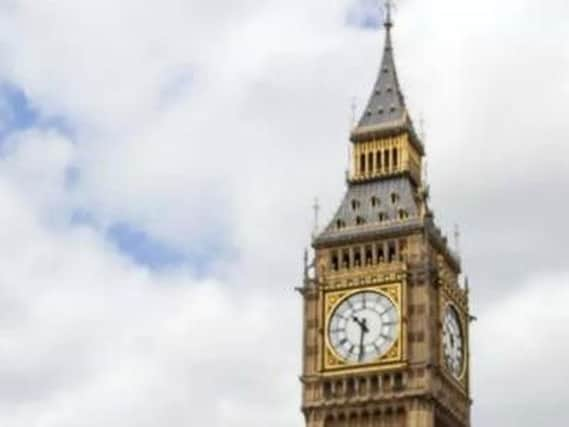The week ahead in Westminster


The Prime Minister is also due to begin the week with a policy speech setting out plans to improve services for mental health patients, as part of her broader "shared society" agenda.
And timing around the announcement of the Supreme Court decision on the Article 50 case remains uncertain, and could result in a re-jigging of the legislative timetable for the coming weeks.
Monday January 9
Advertisement
Hide AdAdvertisement
Hide AdThe week kicks off at 2.30pm with Work and Pensions questions, where child poverty, housing benefits for 18-21 year-olds, and employment trends will be among the key topics.
Then, if opposition MPs follow through on last week's threats, this could give way to an Urgent Question on Sir Ivan's resignation and Whitehall's preparedness for Brexit negotiations.
The main business of the day is a discussion of amendments to the Technical and Further Education Bill, which among other things seeks to extend the remit of the new Institute for Apprenticeships to cover college-based technical education in addition to apprenticeships.
Meanwhile, outside of the Commons, the Communities and Local Government select committee will be questioning Dame Louise Casey about her recent report on integration, with MPs expected to ask about accusations she was too critical of Muslims.
Advertisement
Hide AdAdvertisement
Hide AdThe day will close with an adjournment debate led by the Scunthorpe MP Nic Dakin, looking at the international comparison of sixth-form education
Tuesday January 10
MPs gather at 11.30am for Foreign and Commonwealth questions, where Brexit and Sir Ivan Rogers are likely to once again dominate the agenda.
MPs will then discuss the Commonwealth Development Corporation Bill before moving onto a meatier debate about Lords' amendments to the Policing and Crime Bill.
The Government suffered four defeats on this legislation in the second chamber, including on maximum sentence for stalking and calls for an independent inquiry into the way the police complaints system handled allegations of corrupt relationships between the police and newspapers.
Advertisement
Hide AdAdvertisement
Hide AdThe Home Secretary has already made a concession on sentences for stalking, but it remains to be seen whether or not she will accept the other changes.
Alongside events in the main chamber, MPs will debate children's wellbeing and mental health in schools in Westminster Hall.
Wednesday January 11
The Commons meets at 11.30am for International Development questions – the first opportunity MPs have had to quiz ministers about the department's controversial cash transfers programme.
This is followed by the weekly showdown at the Despatch Box for PMQs.
Advertisement
Hide AdAdvertisement
Hide AdOnce the chamber has calmed down, Thirsk and Malton MP Kevin Hollinrake will present his Guardianship (Missing Persons) private members Bill.
The legislation - dubbed Claudia's Law after missing Yorkshire chef Claudia Lawrence - aims to give relatives the power to take manage a loved one's finances in their absence.
This will be followed by a yet-to-be announced opposition day debate, while in Westminster Hall Hull MP Karl Turner will lead a discussion on funding of the Crown Prosecution Service.
Thursday January 12
MPs gather at 9.30am for Transport questions, before the weekly questions to the Leader of the House, David Lidington.
Advertisement
Hide AdAdvertisement
Hide AdThis is followed by a discussion of the Women and Equalities committee's report on representation of women in Parliament, then backbench debates on the humanitarian crisis in Yemen and the political situation in the African Great Lakes.
Meanwhile, in Westminster Hall MPs will discuss the future of the UK's maritime industry.
Friday January 13
The week finishes, as ever, with private members bills, beginning with Kevin Foster's proposed legislation on the regulation of small-scale radio services.
If discussion of Mr Foster's Bill is wrapped up quickly, it will be followed by Tim Loughton's PMB to introduce civil partnerships for same sex couples. Similar legislation has been unsuccessful on previous occasions, and is likely to face the usual Friday filibustering.